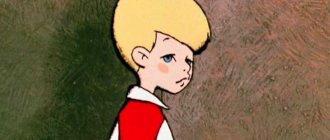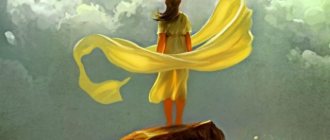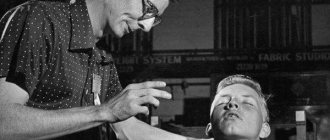Definition
What is the human self-preservation instinct? This is the instinct that allows people to survive. When a car appears on the road, a person will turn away from the car’s trajectory, and if a hurricane begins, a sane individual will hide in the nearest permanent building. Some people say that everything needs to be learned, and this is true. Nature does not always endow people with the same qualities and lay down the same abilities. Some people have a well-developed instinct of self-preservation, while others have to work on its development. How often can a person’s unique ability to preserve his own life come in handy? Daily. Few people think about the fact that hunger is a signal from the body that reminds us that it is time to eat. If it had not been there, the person could have died. The same goes for sleep. A person must sleep, otherwise his body will not be able to tolerate daily physical activity. How else can a defensive reaction aimed at survival manifest itself?
What is the instinct of self-preservation
It is difficult to say exactly what the instinct of self-preservation is. This can be called the body’s reaction to fear and danger, a behavior aimed at preserving life and health. When does a person develop the instinct of self-preservation? The reaction is considered basic and given at birth.
Instinct is always active. But the greatest activity is activated at moments when the individual feels fear, pain or senses a hidden threat. At this moment, the body increases the production of adrenaline, which sends a signal to the brain. He, in turn, uses defense mechanisms against external aggression.
Interesting! The instinct of self-preservation is developed in both humans and animals. In the latter, it is also congenital.
There are 2 mechanisms for triggering the self-preservation instinct:
- Unconscious. In this case, people do rash things. For example, in a moment of danger a person tries to escape from it. But he doesn’t think where or why. As a result, the situation is getting even worse. So, panicking, many get hit by a car.
- Deliberate. A person quickly but carefully thinks through a plan of action. He analyzes several options and chooses the safest one.
In the second case, intuition plays an important role. Typically, in critical situations, very little time is allocated for reflection. The decision must be made quickly. Intuitive behavior is often the only correct option.
Manifestation of instinct
What do you do to survive? Nothing? It is not true. The instinct of self-preservation in humans is an innate quality, the manifestations of which few people think about.
- Satisfying hunger. In order not to die, a person must eat daily. What would happen to a person if there were no hunger? Some individuals who have memory problems might die. And it is simply impossible to forget about what you really want.
- Warm clothes. A person protects his body from the cold before going out into the cold. To avoid sunburn, people use sunscreen. By protecting his body, a person thereby saves his life.
- Treatment. You can die from a common cold. For many centuries, people have improved their knowledge of medicine in order to treat their fellow citizens and themselves. If a person gets sick, he will not lie down and moan; the instinct of self-preservation will force the individual to make an appointment with a doctor.
- Armament. If war breaks out, all people will take up arms. The need for peace and tranquility forces a person to defend his rights and not give his life without a fight.
Human self-preservation instinct
Every person is given the instinct of self-preservation from birth. This is a kind of process of adapting it to the environment in order to avoid emotional and psychological trauma. In the old days, it was mainly about the desire to save one’s life in the face of the threat of death.
There are several forms of manifestation of the instinct of self-preservation in humans:
- Biologically unconscious - when in a situation of danger a person performs all possible actions to save himself, without even thinking about what actions to take. Often, when a person runs away from a dangerous situation for himself, he does not remember how he did it, or is perplexed why he acted in one way and not another.
- Biologically conscious - when in a situation of danger a person realizes his own experiences and even begins to think through his actions, which help him not only escape from the threat, but also receive some benefit from his actions.
Considering other instincts to which a person is subject, they say that the instinct of self-preservation is one of the basic ones, without which humanity would not survive. It competes with the instinct to procreate, although some people easily overcome this incentive, which does not affect the human population, since the majority still give birth to children.
The instinct of self-preservation prevails over others, such as the feeling of hunger, the desire for sex, the desire for power or the feeling of thirst. These instincts are strong, but a person can control them in some situations.
All instincts are based on fear, which people overcome. If fear overcomes a person, then he obeys it and, accordingly, his instincts. If a person is aware of what is happening and calms his fear, then instincts cannot motivate him to action. Usually instincts bypass the conscious part of a person, directly influencing his actions from the subconscious.
Not in every situation the instinct of self-preservation can be called useful. This is associated with those circumstances within which a person can act ineffectively. So, for example, panic does not always help a person in determining the right actions, which can lead to committing erroneous actions. Under the influence of instinct, a person can harm himself or find himself in an even more threatening situation.
Instincts blind a person, he stops thinking. Acting automatically, a person can either save himself or find himself in even greater danger.
Being in society and being brought up by civilized people, a person often succumbs to the distortion of his own instincts. He either cannot manifest them or does not know how to do so. Thus, people who are not faced with violence, wars and other aggressive manifestations shift the responsibility for their own salvation to specialized bodies, while they themselves do not take any measures that are inherent in them by nature.
There are distorted forms of the instinct of self-preservation:
- Trichotillomania.
- Getting tattoos or piercings.
- Self-mutilation, self-harm, causing physical harm to oneself.
go to top
The difference between human and animal instinct
How do people differ from their smaller brothers? What distinguishes humans from animals is the instinct of self-preservation. But animals, birds, and even insects have this instinct. What's the difference then? There are two types of self-preservation instinct.
- Unconscious. When a fire starts, a person will not think about what he needs to take. He will quickly run to where there is no fire. The hare and the fox will do the same. Animals in the forest can not only flee from fire, they will instinctively run to water. A person will do the same. After a terrible natural disaster, not all people can explain why they were able to survive. Many say they don't remember where they ran or what they did.
- Deliberate. What distinguishes humans from animals is the instinct of self-preservation of this particular species. In a critical situation, people can remember that it would be nice to save their loved ones, documents and grab valuables. A person can act quickly and accurately in the event of an accident, rescuing the wounded and pulling out the injured.
Bottom line
The instinct of self-preservation works constantly. However, due to the socialization of people, it is not always necessary and appropriate. The instinct can be suppressed or muffled, but it will always work in stressful situations. The result may be the safety of life, even when the person has not had time to think about how to save himself.
However, in some cases, the innate instinct does not work. A person hurts himself. Suicides, autoaggressors, trichotillomaniacs and other persons who in one way or another cause harm to their health or body are more susceptible to other fears and complexes that suppress their natural instincts.
Lack of instinct
The instinct of self-preservation in humans is an innate quality. But for some individuals it may be absent. Is this bad? People who are not afraid of death are very dangerous. They can, without a twinge of conscience, take the lives of not only themselves, but also those around them. How is it that nature gives some people the instinct of self-preservation, but not others? All people have an instinct, it’s just that some people have it weak, while others have it strong. Society needs risk-taking citizens. People who work as firefighters, police officers and doctors help those who need it survive. Therefore, over time, people become more and more fearless. It is passed on genetically. And if earlier people used instinct for the benefit of society, today they use it to their detriment. If a person does not have the instinct of self-preservation, he may commit suicide or become a bomber. Such people are dangerous both to themselves and to society.
Self-preservation of man
The instinct of self-preservation in humans improves as humanity as a whole develops. The experience of generations is collected and analyzed. And, as always, it is aimed at helping to survive.
In adults, instinct has 2 main manifestations:
- Reproduction. It consists of finding a suitable partner for life, birth and raising offspring.
- Migration. We are talking about finding a place of residence that will be as convenient as possible for starting a family and reproducing.
The instinct of self-preservation in an adult can also be considered a way of adaptation in society. It is a defense mechanism against psychological and emotional trauma. It helps you choose the right social class, status, place in the sun.
Are there people who have no self-preservation instinct?
Everyone has an instinct. Lack of conservation instinct is a serious violation. But there are cases when it is weakened. That is, a person has low sensitivity to dangers and threats around him. We are talking about those who work, for example, as rescuers or those who deliberately risk their lives in order to get adrenaline. They cannot completely turn off the instinct of self-preservation. But we are ready to go against him.
Self-preservation instinct in women
Nature has made the main task of women the bearing and birth of offspring, and subsequent care for them and other family members. This task determines how the instinct of self-preservation will manifest itself. A woman is looking for a man who can provide and protect both her and her children. She shows him respect and remains faithful.
Attention! Cases when a woman tolerates a tyrant or alcoholic husband are not a manifestation of the instinct of self-preservation.
After the birth of children, the female IS is suppressed. Its place is taken by the instinct to protect the child.
Violation of instinct
Have you ever met a person who is terrified of something? What is a person's main fear? Fear of death. What distinguishes humans from animals is the instinct of self-preservation. The use of this instinct leads some to insanity and phobias. People are afraid for their own lives, they see threats everywhere, so they install several locks and CCTV cameras at home. Some people worry that the elevator car may break and fall, so they try to avoid using lifting machines. Panic attacks can haunt a person from year to year. This is not a normal reaction. An aggravated defensive reaction indicates psychological problems that the individual has. They must be fought, otherwise they can drive a normal person crazy. The situation gets worse with age, so do not delay visiting a specialist if you have several of the symptoms listed above.
Suppression of instinct
People love to tickle their nerves. Today this way of relaxation is very popular. Do you think a person has an instinct of self-preservation if he wants to jump with a parachute or climb a cliff without insurance? There is, but the individual suppresses it by force of will. If the instinct of self-preservation is normal, then it can be silenced for a while. For example, a person can read reviews of those who have successfully jumped with a parachute. Comments that say that these 3-5 seconds of free flight were the best in life really stir the blood. A person wants to get his dose of adrenaline, so he gets on the plane with pleasure.
But suppressing the instinct of self-preservation does not always play into people’s hands. If a person falls into depression and cannot get out of it, he may decide to commit suicide. Causing pain to yourself doesn't seem like such a big deal compared to depression, which hasn't subsided for several years. Due to the fact that instinct can be relegated to the background, people decide to get tattoos or deliberately mutilate their body.
Why do some people lack the instinct of self-preservation? (3 photos)
Author: Elite Theory
30 October 2020 13:14
Tags: business law education criminal code finance
720
3
How are dogs that are supposed to become service dogs weaned from eating bait that could be “accidentally” poisoned? How are they taught to the “thought” that food, even if not so attractive as bait, is safe only from the hands of the owner?
0
Very simple. Pieces of what is considered the most coveted food in the dog world are scattered and laid out throughout the area and in the training area. A voltage with a voltage that is safe for the dog’s life, but very noticeable, is applied to these pieces from below, so that it is not visible. As soon as the dog, having smelled the food, tries to eat it, it receives such an electric shock that its jaws tighten and it jumps away from the bait with a squeal.
0
Another example necessary to understand the main idea of this article. I had a friend (why: was he? Answer below...). Possessing real estate and a huge supply of cash in various currencies, laid out in safes located in all rooms in an apartment made up of adjacent apartments adjacent on the landing. Five children (three relatives and two adopted from the orphanage), in addition to not denying themselves anything, visited different countries during all the holidays. New Year, naturally, is the sea or ocean coast in warm latitudes. Then, in order to strengthen the family, as he believed, the property would be transferred to his wife, who, naturally, knew the codes of all the safes in the apartment. Although, let's be honest, he kept part of the funds in the house of his mother, who acted as an investor for the business in which numerous brothers and sister of my friend were involved, and which he created for them. A person appears whose goal is to live at the expense of another. He knows this goal himself, but tries to hide it from others, which is quite natural. How to appropriate for yourself what others have earned? There are basically three options: steal or take away, appropriate fraudulently, or go into politics, promising to give a lot of good and fight all the bad. The first option consists of two directions. Act contrary to the criminal code or use it to serve oneself as a tool for appropriating someone else’s property. That is, go to work in law enforcement or fiscal authorities and take the state as an accomplice, speaking on its behalf. I became acquainted with the second option while working as a television journalist. The scheme is simple as hell. A person is taken in whose name a construction company is registered, the organization and functioning of which is taken over by a deputy elected by the people. The scheme also includes the mayor of the city, the head of the police, the prosecutor, the Chairman of the court and other members of the organized crime group, who occupy not the last places in the government structure. Among other things, the operation of the scheme will resemble the structure of an ordinary financial pyramid. The company is allocated a plot of land. Providing advertising for future housing, the construction of which must be financed by future residents. For an officially allocated plot of land, a certain amount from the contributed funds of future homeowners is packaged in the form of a “copier box” and distributed among the organizers of the pyramid. But the construction estimate also includes the contents of this “box...”, which is no longer there! Then a new plot is allocated for new construction and new future residents take their money to the construction company, financing the construction of their future home. But part of this money goes to cover the costs of the “box...”, and it turns out that the new residents are financing the construction of the previous housing, which is being built by the company for completely different people. When the first house is built, the company does PR with a show of the happy owners of the new apartments. The residents are delighted. New people are running to the company and bringing their money there. Because there is an advertisement for new allocated plots on which new houses will appear. But there is no one to tell naive people: only those who make it before some critical moment will receive housing. Everyone who brings their money after this will simply finance those “boxes...”, the contents of which “melted” in the pockets of the organizers of the scheme... One of the television journalists, having conducted a journalistic investigation, is trying to warn future victims by explaining a simple fraudulent scheme. But, among other things, he is forced to hide for a year and a half from the prosecution of the power component of the scheme, which, on behalf of the state, puts him on the All-Russian wanted list, as if he were a murderer or rapist. Although he just wanted to help people save their money. I will not put together a general matrix from the puzzles I cited above. I will leave this complex intellectual work to the readers. Let me just say that the wife of my former acquaintance, mentioned above, met by chance a man who convinced her that her husband was not a match for her at all, that she deserved to live better, that she deserved a real man who would carry her in his arms and serve her. coffee in bed, and not disappear for days in God knows where, under the guise of getting money (Ukraine immediately comes to mind). The husband was shot by a hired killer, the wife received nine years for organizing the murder, and the resourceful young man secured a comfortable old age for himself. Although I suggested that this friend of mine organize a security service. But he was very economical... Why am I all this? Putting on a par the collapse of the USSR, the Arab Spring, the “Gidnost Revolution” and the blatant insult to the people of Russia by the nomination of the most worthy woman in the country to the President of the Russian Federation, I have a question: why do people allow themselves to be robbed with their own hands? No self-preservation instinct? After all, even dogs, after several unsuccessful attempts of their own to try the free bait, begin to understand that free cheese only comes in a mousetrap. People, supposedly having intelligence, must look around and model what they see on diagrams with their own participation. Or are only some people capable of this? Precisely those who have intelligence? What about the rest? Do they not have intelligence? Fuckers, what?! PS Yes, by the way, I’m already starting to get tired of “poking in the face” at how suckers are being bred by means of an imperceptible, at first glance, mixing of illusion with reality and calling this “venigret” with one general word: mathematics. Isn't even this argument enough? P.P.S.
0
Source:
Related links:
- What not to do in Singapore
- California became the first US state to officially recognize a third gender
- Vladimir Putin ordered to tax cryptocurrency mining
- The fight against smoking is gaining new momentum
- Obscurantism of the week: patriarch on a motorcycle and church Batman
Tags: business law education criminal code finance
Did you like the post? Support Chips, click:
13 12 1
Liked
1 0
4
Partner news
Childish instinct
With rare exceptions, all children are born with the same instinct of self-preservation. So why does the situation change with age? Excessive care or a dysfunctional family can play a role in the development of the child’s psyche. In the first case, the child will not be afraid of absolutely anything, but in the second, he will grow up too downtrodden. But this will become obvious only later. It was described above how the instinct of self-preservation manifests itself in an adult, but in children and infants the reaction to the world around them is slightly different. They react to everything by screaming. What could be the reasons for continuous sobbing?
- Losing my mother. If the child does not see his mother, he begins to cry. Mom is the person without whom the baby cannot exist.
- Strangers. A crowd of unfamiliar people is a potential danger. Therefore, a child may cry so that his mother will take him away from a strange gathering for him.
- Loud sounds. Music, noise or television disturbs the child's sleep. The instinct of self-preservation tells the baby that loud noises are dangerous.
- Satisfying natural needs. If the baby wants to eat or drink, he will call for adults. Without this, he will not survive, so at the slightest need he raises a strong cry.
Self-preservation instinct in children
The instinct of self-preservation begins to work from the first second of birth. Please note that the child does not do anything that could cause him harm. All his actions are aimed at avoiding dangerous situations. In children, the instinct of self-preservation manifests itself in various forms:
- In reacting to strangers.
- Paying attention to objects that frighten or loud sounds.
- In crying when hungry, thirsty or “went to the toilet.”
- Crying if mom is not around.
The instinct of self-preservation in a small child operates 100%. Until he gets to know the world, learns the rules of society, and begins to realize himself, he is completely subordinate to his instinctive impulses, which act in only one direction - to survive.
Along with the instinct of self-preservation, the child exhibits curiosity. He actively explores the world around him in which he appeared. He can stick his fingers into a socket, douse himself with boiling water, or climb out onto a broken chair. What is it - the instinct of self-preservation does not work? To some extent, it is about the predominance of curiosity over instinct. Until the baby experiences that specific objects cause pain to his body, or the parents tell him how painful it will be if he does what he wants, the little man will not understand anything.
A pathological condition is when a child does not feel pain from touching a hot iron or from pouring boiling water over it. This indicates disturbances in the conduction of nerve impulses, which doctors should deal with. In rare cases, this effect is observed, but it does occur, which prevents the instinct of self-preservation from working in full force.
While the baby does not know and understand much, he should be under parental protection. Instincts work, but there is no knowledge of what can cause pain or even lead to death. That is why parents should be with their child absolutely everywhere in the first years of life and monitor what he is doing.
The child is not suicidal. He may simply lack knowledge of what could cause his death. The instinct of self-preservation works 100%, without suppressed emotions, which happens over time as a person grows.
go to top
What can instinct be confused with?
A person can sometimes have a poor understanding of his feelings. Violation of the self-preservation instinct helps to become even more confused in the situation. Therefore, people do not always understand what truly poses a danger to them.
- Stupidity. A person may suffer due to overestimation of his own strength or due to lack of information. For example, not knowing that a shark can be found in the open sea, an individual will swim without fear. A predator can take a person by surprise, and the instinct of self-preservation can no longer help. Overestimating one's own strengths may involve conquering a steep mountain. An unprepared person can go to storm the mountains, and halfway through the journey realize that there is no more strength. There will be little choice; if you don’t have enough strength to climb, you’ll have to fall.
- Fear. A person can panic over absolutely nothing. For example, a girl will be afraid to walk around the city center at night only because her grandmother told her that after the war it was impossible to go out at night.
Self-preservation drive disorders
Quantitative disorders of the self-preservation drive
A decrease in the drive for self-preservation can also be detected at a younger age by a decrease in the natural level of anxiety, indifference to dangers, and an inability to develop defensive reactions. For example, this may manifest itself as a weakening of the defensive reflex in the form of a lack of defensive reactions when unexpectedly swinging at a child.
An important sign of a decrease in the drive of self-preservation is auto-aggression (Greek autos - oneself, Lat. aggressio - attack) - the desire to commit actions that cause harm to oneself. Manifestations of auto-aggression are distinguished by a variety of auto-destructive actions: from self-deprecation and self-blame to self-harm, pain, and, in extreme cases, suicidal (Latin sui - oneself; caedo - to kill) actions - the desire to commit suicide [Gindikin V. Ya., Kagan V.E., 1999]. However, with regard to suicide, it is important to remember V.V. Kovalev’s remark that only a suicide attempt that is not associated with conscious motivated auto-aggression is caused by a violation of the self-preservation drive (1985).
Auto-aggressive actions can be in the nature of neurotic or neurosis-like rituals. These include:
- onychophagia (Greek swelling - nail; mania - attraction) - biting nails;
- autodepilation (Greek autos - yourself; Lat. depilare - remove hair) or trichotillomania (Greek tryx - hair; tyllo - pull out; mania - attraction) - twisting, twitching, and in severe cases, pulling out hair;
- picking off hangnails, scratching and combing the skin;
- lip biting;
- light and not very blows inflicted on oneself, and similar actions.
As one of the mechanisms of their occurrence, it can be assumed that in this way an anxious child, feeling that he does not meet the expectations of his parents, symbolically punishes himself, as it were, in the hope that he will not receive even greater punishment. Similar obsessive rituals are found in patients with neurosis, with organic lesions of the central nervous system, and with schizophrenia. In the latter case, the rituals are very unusual; patients often involve other people in them and require them to accurately perform ritual actions.
In children with severe brain lesions and severe dementia, auto-aggressive actions can be very brutal. Thus, patients with Lesh-Nyhan syndrome often bite their lips and fingers so much that the damage can be of the nature of automutulation (Greek autos - itself; Latin mutilatio - shortening). However, even with severe mental retardation, it is sometimes possible to analyze and understand what provoked the patient to auto-aggressive actions. The following clinical case can be cited as an example.
Example.
In a psychiatric hospital, for the purpose of consultation, we were presented with a 16-year-old girl, Sasha B., with Cornelia de Lange syndrome. There is evidence in the literature that many patients with this rare disease experience a decrease in intelligence, and there is often a desire for self-aggression. This girl was no exception. Her intelligence was reduced to the point of profound debility.
By the time of the consultation, she had already been in a psychiatric hospital for more than a year, and often had to have her hands tied or given antipsychotics. These measures were necessary, since the girl had pronounced self-aggressiveness. Upon admission to the hospital, there was a wound on her forehead that she inflicted on herself with her nails and constantly scratched it until it bled. The therapy she received with chlorpromazine was ineffective.
Talking with my mother, a very caring, intelligent woman, I found out that Sasha has an older brother, a student, who has always been an excellent student. Until the age of 15, Sasha did not experience any signs of autoaggression. Sometimes she was stubborn, but, as a rule, it was possible to come to an agreement with her. Sasha took care of herself completely, learned to wash dishes and sweep the floor. Sometimes she was even sent to buy bread from the bakery located in their house, where the sellers knew her.
After leading questions, the mother managed to remember in what situation Sasha first showed auto-aggression. When the girl turned 15, her mother decided to teach her to read and write. Hard work for a month and a half yielded results: Sasha began to recognize the letters “A”, “B” and “M”, and tried to reproduce them on paper. The classes were hectic. There were tears, and persuasion, and promises of sweets for a beautiful letter, and even threats. Recalling this time, the mother noted in retrospect that Sasha’s sleep was disturbed at that time, she became more irritable and stubborn. For the first time, an outburst of aggression occurred during one of the daily activities. Sasha, after another unsuccessful attempt to write a letter, suddenly jumped up, ran up to her brother and hit him in the face. After that, she went to the mirror, sobbing, and began to scratch her face violently. It was difficult to calm her down. In the following days, classes continued, and Sasha’s outbursts of anger and aggression, directed mainly at himself, became increasingly stronger. Finally, one day her family couldn’t cope with her and called a specialized psychiatric ambulance team. So she ended up in the hospital.
The whole family was very worried about Sasha. The caring mother, having agreed with the head of the department, came every day to feed her daughter a home-cooked lunch, after which she continued to teach her to read and write. The patient's condition was assessed as depressive, and she was prescribed appropriate medications. The mother listened to our recommendations and stopped classes with her daughter. Three weeks later, Sasha was discharged home with a healed forehead; attacks of auto-aggression occurred less and less often and soon stopped. A year later, the girl’s condition was satisfactory.
In the above case, the auto-aggression that the patient showed is clearly associated with the increased level of claims of the mother towards her and the dissatisfaction that she expressed with the patient’s successes. The impulsiveness of the patient's aggressive actions and their brutality are typical qualities indicating organic brain damage.
Often, elements of masochism can be noted in the self-aggressive behavior of patients.
Apparently, we can talk about an extreme drive of self-preservation or even its absence in very rare cases when persistent unmotivated suicidomania occurs in patients with schizophrenia, not even associated with delusional experiences.
drive of self-preservation – previous | next – disorders of self-preservation drive (end)
Content. E. G. Eidmiller. Child Psychiatry
How to develop the instinct of self-preservation
If a child had a quiet childhood, and his mother did not give him the opportunity to climb trees or run through puddles, then the teenager may grow up “greenhouse”. He will know about the dangers that await him only by hearsay. The instinct of self-preservation is a basic instinct, but sometimes you have to develop it through your own efforts. How can this be done? Start playing sports, but not extreme ones, but something like martial arts. Thanks to sports, excess energy will come out, but your health will remain. Try to find a safe hobby. It could be music, art or dance. For a person with excess energy and a love of adrenaline, public speaking and communication with high-ranking persons can be a salvation.
How to suppress the instinct of self-preservation
It is difficult to say who has an easier life: a person who loves risk, or a person who is terrified of danger. It’s probably hard for both one and the other. But how can you find the fine line and overcome your fear? You should take up extreme sports. Try to master a motorcycle or ride a racing car, skydive or paraglide. There is no need to completely eradicate fear; you should learn to manage your feelings and, if necessary, push the instinct of self-preservation aside. You can tickle your nerves from time to time by watching horror films or reading horror stories. But don’t get carried away, remember that the line between two extremes is very thin.
What problems might there be with IP?
The main difficulties with the self-preservation instinct (IP) may consist of the following positions:
- pathology;
- increase in IP;
- IP reduction;
- perversion.
The innate sense of self-preservation can only have problems in the case of some pathology of the nervous system. This manifests itself even in infancy, when the child does not remove his hands from a hot object or does not feel pain when struck. Slow reactions or their complete absence can lead to the baby becoming accustomed to pain or not feeling it at all and dying. If such a situation arises, you should immediately consult a doctor.
An increase in IS manifests itself in fear of the novelty of a situation, objects or environment, a violation of the usual course of things. Often such reactions are unmotivated and are accompanied by severe agitation or inhibition. It has been noted that early autism and neuropathy in children are manifested by an increase in IS.
Important! The lack of necessary information or its incorrect interpretation can lead to panic reactions, as a result of which the threat to life only increases.
A heightened sense of self-preservation can be harmful. For example, it happens that a person, afraid to fly on an airplane, does not have time or does not get to the right place at all. As a result, they miss the opportunity to improve their quality of life.
Absence, disturbance or suppression of feelings
A decrease in IP is accompanied by human actions that increase the risk to his health and life in general. This manifests itself in such moments as:
- alcohol, drug and tobacco abuse;
- casual sex (unprotected sex);
- lack of self-control when receiving dubious pleasures;
- demonstration of “fearlessness” under the influence of bad company;
- doing extreme sports without insurance.
This can also include uncontrolled aggression and loss of fear. Such deformations of the sense of self-preservation are possible due to psychological trauma suffered in childhood or prolonged stress.
Lack of IP among drug addicts
Perversion of IP is accompanied by directed aggression (hostile actions) against oneself. As a result of this, a person inflicts injuries on himself, mutilates himself, and attempts to commit suicide. Sometimes such a person has masochistic tendencies.
Is it possible to solve problems on your own?
One example of the human self-preservation instinct is the fear of heights. A person cannot look down from the 100th floor without fear. And that's quite normal. But there are people who cannot walk across the bridge, which is suspended 10 meters above the river. Such fear is stupid and unnatural. Fear that does not interfere with your life and protects you from committing various stupid things is the instinct of self-preservation. But what if it is developed too strongly or too weakly? If you have been trying to improve the situation for several years, but all your attempts are unsuccessful, then consult a doctor. A specialist will be able to help you and save you from panic attacks and other nonsense that your parents or teachers have put into your head.
Self-preservation of an adult
Extreme situations in the life of an adult can arise at any time: representatives of risk-related professions, lovers of extreme recreation or sports are especially susceptible to this - in case of danger, the instinct of self-preservation gives commands to the brain to survive at all costs. Further, the success of solving the problem of survival depends only on the person and his ability to pull himself together, concentrate in a difficult situation, and think through further actions.
Fear and a sense of self-preservation are inseparable concepts: only fear for one’s own life can push a person to take decisive action. From the instinct of self-preservation come the subsequent ones associated with it - the feelings of thirst and hunger are aimed at preserving the physical health of the body, fainting and memory loss can become a protection of the human brain from psychological shocks.
The task of self-preservation of an adult is already defined by the name itself: at a specific moment, all a person’s forces are aimed at preserving his life activity or adapting to emerging conditions that are dangerous for a person.
In risky situations, when fear for one’s own life is manifested, the hidden reserves of the human body are revealed: physical muscular strength, endurance, speed, reaction speed, etc. increase. In exceptional cases, a hypertrophied instinct of self-preservation can transform into a delusion of security and a serious psychological problem that a person cannot cope with on his own - in such cases, an appeal to a professional psychologist or psychotherapist is required.











